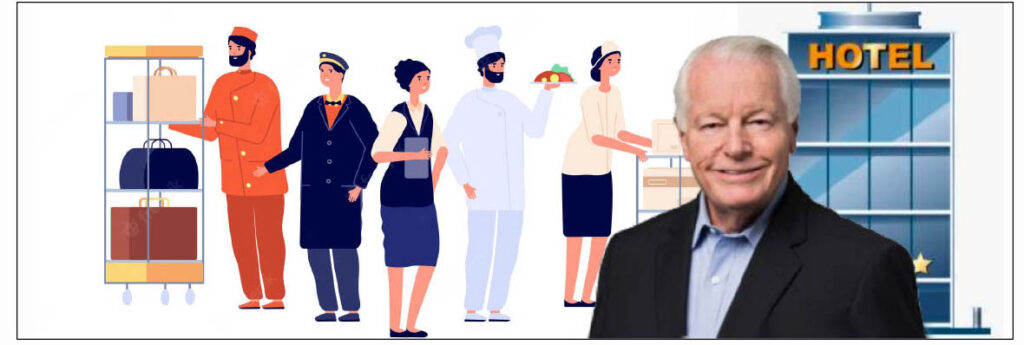After 17 years at the helm of U.S. Travel Association, few people in this industry are better placed to understand its current difficulties and challenges than Roger Dow. We caught up with Dow this weekend and he unveiled his ideas for a new company called Future Work Solutions (FWS) that he believes will help resolve one of the biggest issues facing travel and tourism today.
Dow is partnering with Mike Gamble, president & CEO of SearchWide an executive recruitment firm for companies in the travel, tourism, hospitality, convention, trade association, venue management and experiential marketing industries.
“Our future workforce is changing significantly in their attitudes towards work. The millennials and Gen Z generations combined are twice as big as the boomer generation,” he told us.
Of great importance to these generations are flexibility, and the ability to choose “when where and how” they work, (their) balance of life, etc. This will result in a fundamental change on how employers approach work and requires our industry to think differently (in order) to fill the significant jobs gap.
So, FWS has created an app to connect tourism employers with pre-qualified and vetted employees. Different from other temporary employment apps, it will address the issue city by city with an “in market” team to work with the companies, local government and organizations.
The app will allow workers to post their skills, preferences and availability. Hotels and tourism companies can pitch available jobs to workers, who can then choose when they work and what job best suits them. They are not tied to any single company or shift but may work at different positions, in different companies, and at times that work for them.
“We have identified our first city and are working with the mayor, economic development, convention bureau, convention center, stadiums and black and Hispanic chambers of commerce. Social media will play a big role in getting the word out, as well as utilizing the distribution capability of each of these organizations.”
“The inability to properly staff the leisure and hospitality sector will result in reduced revenue, profits, and customer satisfaction and be an impediment to future growth.”
Dow says they, “will be targeting previously employed skilled employees, the under-employed in the cities, veterans and the former incarcerated. All workers will be vetted in advance and be using facial recognition and QR codes for identification when they arrive at the place of work.
“One of our overriding objectives is to create a pathway to the middle class which web will be doing with online training and a strong push for internship programs.”
FWS expects to go live with its first city by November of this year.

